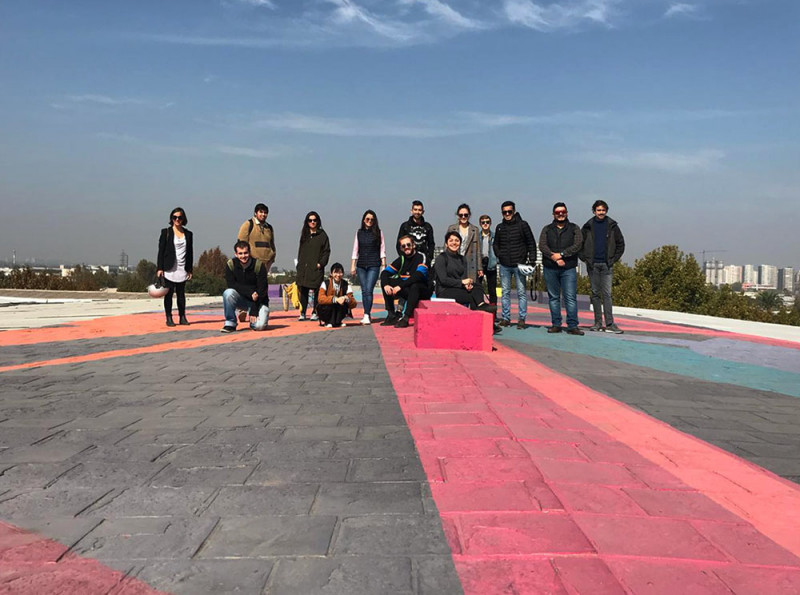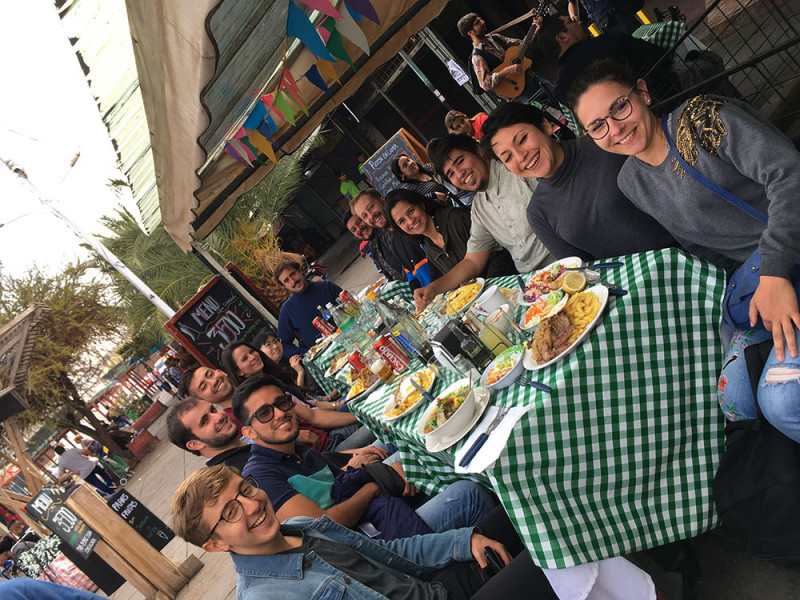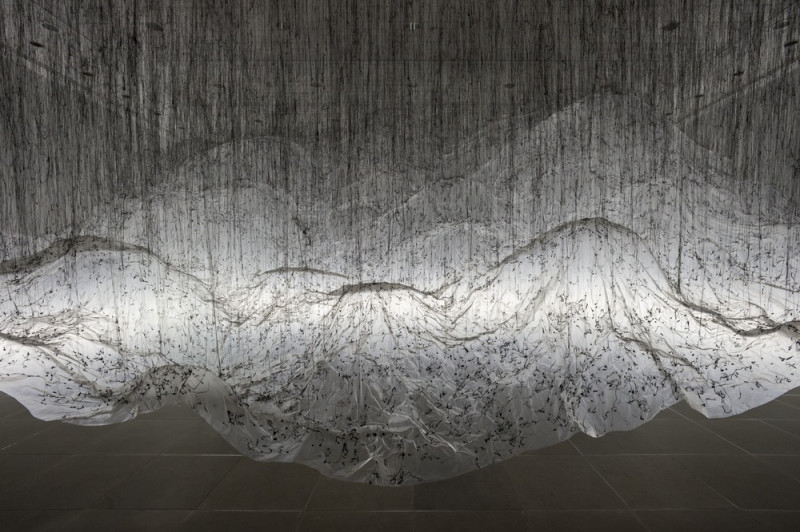
Apr 24, 2019
Group photo
Group 5 and 6 join forces.
Alejandra, João, Simon, Paulina, Keina, Ana Maria, Cristobal, Steven, Catherine, Manon, Juan, Ricardo, Maximiliano, Mariano.

Apr 24, 2019
Group photo
Juan, Ricardo, João, Steven, Ana Maria, Keina, Mariano, Maximiliano, Cristobal, Paulina, Simon, Catherine, Manon

Jan 10, 2019
- landscape | Reverse of volume RG, Yasuaki Onishi, 2012
Environmental justice for an indetermined ground
Cartographies for landscape appropriation in Matadero Franklin
"Known urban typologies of square, park, district, and so on are of less use or significance than infrastructures, network flows, ambiguous spaces, and other polymorphous conditions that constitute the contemporary metropolis. (...) The function of design is not only to make cities attractive but also to make them more adaptive, more fluid, more capable of accommodating changing demands and unforeseen circumstances."
—Alex Wall, Programming the Urban Surface, 1999
The Matadero Franklin neighborhood can be understood as a product of multiple social, productive, economic and natural processes that overlap in a concentrated area, establishing interactions that define a new ecology. The cities infrastructure is one of the clearest elements to visualize the relationship between urban processes and the ecological conditions that determine them.
We will focus on the friction area between the neighborhood's urban fabric, the metropolitan infrastructures, the cemented green areas as well as the interstitial spaces between them, defining the critical potential of cartographic techniques in the generation of arguments that mediate between local and territorial conditions through different scales.
Using the definition of topography as an intermediator between specific forms of specific sites and the metropolitan infrastructures, the workshop will seek to generate strategies that strengthen the ecologies in each of the different scales.
“Environmental justice” is achieved when all people regardless race, color, national origin, gender, or income live in neighborhoods free of health hazards, are able to enjoy equal access to safe, healthy places, and participate meaningfully in the planning of their communities.
In the field of landscape architecture, environmental justice is addressed through the concept of “equitable design.” The process and objective of landscape design must be revisited so that these happen within inclusive and participatory actions with the communities. The achievement of such processes relays on the quality of the involvement and the acknowledge of local resources, while the objective remains attached to the creation of healthy places and the access to these resources.
Environmental justice is explicit in the objective of equitable design practices, but as designers who are responsible of the process of making such places we must be careful so as not accelerate nor create environmental injustices between communities and resources.
The workshop will focus in pursuing environmental justice through education, research, practice and will explore how the landscape is shaped, identifying how communities are distributed and how common places enhance the local experiences in the Matadero-Franklin neighborhood.






